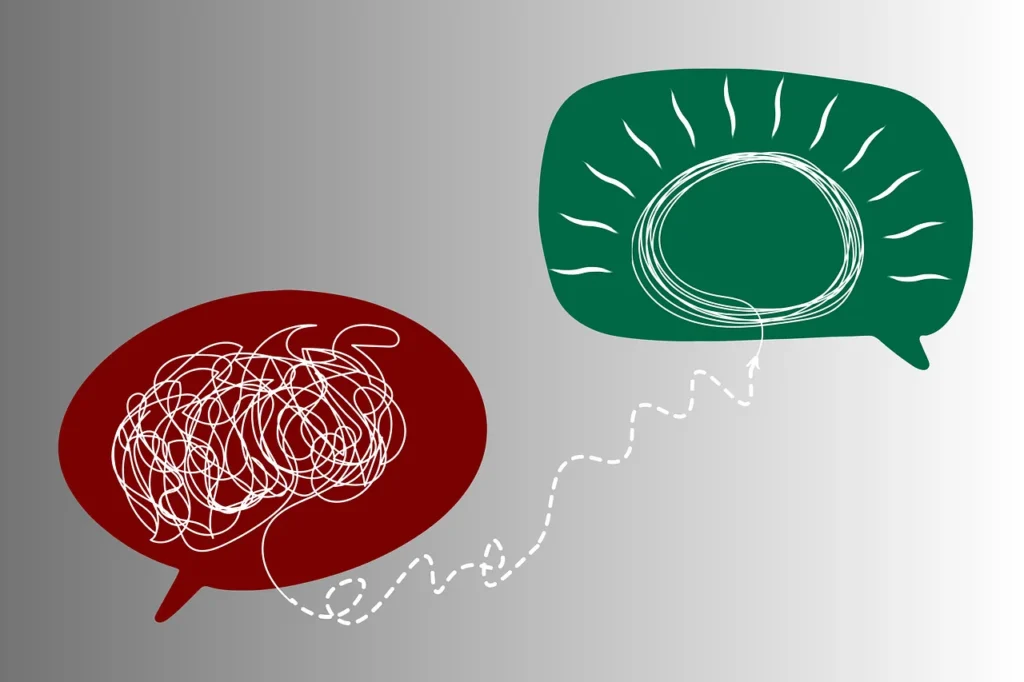
In today’s fast-paced world, personal development and self-improvement have never been more important. Many of us find ourselves at a crossroads when deciding between coaching and therapy. Are you facing personal challenges or feeling uncertain about the best path for your growth? This article delves into the key differences between the two methods, dispels common myths, and provides guidance to help you choose the approach that best fits your needs. Explore in-depth analyses, practical tips, and real-life success stories as you embark on a journey toward self-discovery and empowerment.
Understanding the Fundamentals: Therapy and Coaching Explained
Before choosing a path, it is essential to understand what therapy and coaching really entail. Therapy focuses on uncovering deep-seated emotional issues and healing past wounds that may be affecting your present. On the other hand, coaching is directed toward future goals and improving performance.
Although therapy and coaching may seem mutually exclusive, both are dedicated to promoting personal growth through structured, goal-oriented frameworks. While therapy dives deep into emotional healing and recovery, coaching sharpens your skills to boost both professional and personal performance.
This section lays the groundwork for a comprehensive analysis of these two disciplines, empowering you with the insights needed to make an informed decision. For additional details, resources such as the American Psychological Association and the International Coach Federation provide extensive information on both fields.
Key Differences: What Sets Therapy Apart from Coaching
Therapy and coaching differ primarily in their objectives, methods, and desired outcomes. Therapy addresses mental health issues, dealing with emotions, relationships, and trauma, while coaching is geared toward achieving future life or career goals. Understanding these differences is crucial to selecting the right strategy for your personal growth.
Therapy is provided by certified professionals trained in diagnosing and treating psychological disorders, whereas coaches, though skilled, are not licensed to treat mental health issues. Therapists offer supportive counseling and cognitive interventions to help you heal, while coaches implement practical strategies for day-to-day improvements.
There is also a distinct difference in session dynamics: therapy sessions tend to be patient-led, exploring deeper emotional territories over time, while coaching sessions are structured around clear milestones. Knowing these nuances can help you decide whether you need internal healing or a performance-driven plan for your future.

Methodological Differences
Therapy often employs evidence-based techniques such as Cognitive Behavioral Therapy (CBT) and psychodynamic approaches to address a range of psychological issues. In contrast, coaching utilizes goal-setting frameworks and accountability strategies, each designed to meet specific objectives.
Recognizing that these approaches serve different purposes allows you to better assess your own needs—whether you seek deep internal healing or targeted external growth.
Professional Qualifications
Therapists undergo rigorous education and licensing processes, equipping them with the skills to manage complex mental health concerns. Coaches, while often holding certifications from reputable organizations, do not usually go through the same level of formal mental health training.
This distinction means that if your challenges are rooted in deep-seated emotional or psychological issues, therapy may be the more appropriate option. If you are aiming for career growth or personal achievement, coaching might be better aligned with your objectives.
Benefits and Limitations: Finding the Right Approach for You
Both therapy and coaching offer significant benefits, but each comes with its own set of limitations. Therapy provides a safe space to address emotional wounds and gain insights into your inner self. In contrast, coaching focuses on actionable goal-setting, strategic planning, and measurable outcomes.
Weighing the pros and cons of each approach is essential to making an informed decision. While therapy can foster long-term inner change, it might not deliver immediate practical results. Coaching is ideal for short-term achievements and performance boosts, but it may not fully address deeper emotional challenges.
Consider whether your focus is on long-term emotional healing or on setting and reaching specific future goals. Reflect on whether you need in-depth psychological support or a clear framework for planning your next steps. Ultimately, both approaches emphasize the importance of self-awareness and personal empowerment.

Real Life Applications: Case Studies and Success Stories
Real-world examples vividly demonstrate how both therapy and coaching can lead to life-changing outcomes. These success stories highlight the tangible benefits of each approach and show how personal challenges can be overcome with the right guidance. Whether it’s overcoming trauma or achieving significant career milestones, every journey to transformation is unique.
For instance, many professionals have elevated their leadership skills and productivity through coaching, addressing workplace challenges with focused strategies. Meanwhile, therapy has empowered individuals to overcome depression, anxiety, and trauma by providing the deep emotional support needed for lasting healing.
Drawing on case studies and validated data from sources like the National Institute of Mental Health and renowned coaching organizations, this section offers actionable insights into how each approach can work for you. It reinforces the idea that the best choice is one that resonates with your personal needs and goals.
Case Study: Coaching for Career Advancement
Consider the story of a mid-level executive who felt stuck in their career. With the help of a professional coach, they set clear strategic goals, honed essential leadership skills, and ultimately earned a significant promotion. This example highlights the potential of coaching to accelerate professional growth.
The coaching sessions were built around actionable steps, accountability, and measurable targets. This practical approach not only boosted performance but also instilled a renewed sense of self-confidence and direction.
Case Study: Therapy for Emotional Resilience
Another case features an individual struggling with anxiety and unresolved childhood trauma. Through ongoing therapy, they learned effective coping strategies and began to untangle the roots of their emotional distress. Although the process was gradual, the resulting transformation was profound.
Regular sessions, self-reflection exercises, and mindfulness techniques contributed to building resilience and a healthier response to stress, demonstrating the lasting benefits of therapy.

Practical Guidance: Tips and Strategies for a Successful Journey
Deciding between coaching and therapy may initially feel overwhelming, but these practical strategies can help you make the best choice for your needs. Start with an honest self-assessment: determine whether your challenges stem from emotional issues or if they center around achieving specific future objectives.
It is also crucial to seek out reputable professionals. Look for licensed therapists with proven track records or certified coaches backed by established organizations. Building trust and ensuring credibility are key as you begin your journey towards self-improvement.
In some cases, a blend of both approaches may offer the most holistic solution—balancing emotional healing with structured goal-setting. For more tips and detailed guidance, consult trusted resources like the American Psychological Association and the International Coach Federation.
Self-Assessment Techniques
Begin by listing your challenges and aspirations. Ask yourself: Are these issues tied to past experiences, or are they related to future ambitions? This simple exercise can clarify whether you need to focus inward or plan for future growth.
Utilize tools such as personality tests and reflective journaling to gain insights into recurring patterns that may require healing or improvement.
Choosing the Right Professional

Conduct thorough research by checking online directories, reading reviews, and scheduling initial consultations with therapists or coaches in your area. These preliminary meetings can help you determine whether the professional’s style aligns with your personal needs.
Ask about their methodologies and past successes. This dialogue not only builds trust but also confirms that you are making a sound commitment to your future.
In summary, both therapy and coaching open up unique avenues for personal growth by addressing different aspects of our lives. Throughout this article, we have clarified the definitions, strengths, and limitations of each approach and shared real-life examples that illustrate how intentional self-work can drive transformative change. Remember, you don’t have to choose one exclusively—consider blending both methods to create a holistic strategy that fits your lifestyle. Empower yourself with knowledge and take the decisive step towards a more balanced, fulfilling, and vibrant life.




